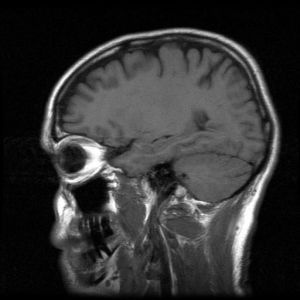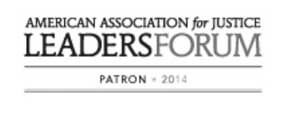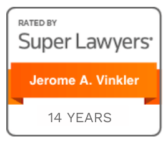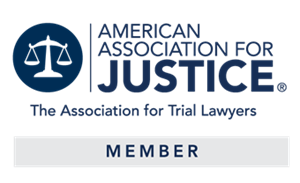
Brain Injuries
Traumatic Brain Injury Lawyers Chicago
Each year, millions of people experience the devastating effects of brain injuries due to the negligent actions of another person. Whether mild, moderate, or severe, if you or a loved one has suffered a brain injury, it is vital to speak to expert traumatic brain injury lawyers in Chicago like Vinkler Law.
Brain injuries, whether minor or severe, can have long-term, debilitating effects on your life and livelihood, leading to devastating consequences for you and your family.
When someone negligently causes a brain injury, the law requires the party responsible to financially compensate for past and future medical and life care costs, as well as to make up for the pain, suffering, and disability they have caused.
Schedule a Free Case Evaluation

What You Need to Know About Brain Injuries
There are three facts essential to be aware of if you or your loved one has suffered a brain injury:
- Brain Injuries may never heal.
- Negligence often causes brain injuries.
- You may be eligible to receive compensation.
Whether subtle or severe, traumatic brain injuries can have overwhelming life-changing effects and often lead to the need for long term medical and personal care.

Many physicians fail to properly diagnose a concussion because CT scans and other diagnostic tests may not easily reveal it. A medical evaluation for a brain injury includes:
- Performing a cognitive assessment
- Taking the proper tests, such as MRIs, CT scans, and other scans such as PET and SPECT scans if necessary
- Getting a full family history
- Doing a complete functional impairment assessment including checking for loss of bladder or bowel control
Types of Traumatic Brain Injuries
According to the Center for Disease Control, in 2014, there were nearly 2.87 million traumatic brain injury-related visits to hospital emergency rooms. When an injury disrupts the normal function of your brain, it is considered a traumatic brain injury or a “TBI.” Proper medical diagnosis is required to prevent long-term complications and permanent limitations, or even death.
- Mild TBI: The mildest form of a traumatic brain injury is a concussion and can occur when the head receives a direct blow or a penetrating injury. A Mild TBI can involve no loss of consciousness or no more than 20 minutes of unconsciousness. Common symptoms include memory loss, ringing in the ears, slurred speech, delay in responses, and nausea. Victims often report feeling a little dazed or confused.
- Moderate TBI: A moderate brain injury or Moderate TBI can result in a loss of consciousness anywhere between 20 minutes to six hours. Moderate TBIs will typically involve memory difficulties, concentration and attention issues, reduced executive functioning, and impulsiveness. Some sensory challenges may occur, as well as physical pain, sleep problems, and appetite changes. In addition to the risk of seizures, social-emotional issues like depression and irritability can develop. Those who suffer from moderate TBIs have symptoms lasting weeks or months with a possibility of permanent changes.
- Severe TBI: A traumatic brain injury is considered severe if it causes unconsciousness for more than six hours. The range of symptoms is similar to a moderate TBI, but to a greater extent. Severe TBIs result in permanent brain damage, increasing the likelihood of living with long-term permanent disability.
Frequent Causes of Traumatic Brain Injuries
Traumatic brain injuries often result from a wide range of accidents and injuries involving trauma from a violent blow or jolt to the body or head. Most brain injuries occur in accidents or other situations involving motor vehicle crashes, construction negligence, medical malpractice, or from defective products and medical devices. Some of these injuries can be subtle; others are more severe and can result in visible physical disabilities. Some of the most common causes include:
- Physical assaults
- Car and truck accidents
- Slip-and-fall accidents
- Sports accidents
- Construction accidents
- Medical malpractice
Types of Traumatic Brain Injury Cases We Handle
At Vinkler Law, our legal team is well-versed in handling the complexities of traumatic brain injury cases. Our extensive experience working with clients who have suffered brain injuries cover the full spectrum of severity. These cases involve:
- Concussion: Often perceived as a minor injury with damage or effects going away within 24 hours or a few days, a concussion can cause lasting damage and take months or even years to heal.
- Contusion: Typically caused by an impact to the head, a brain contusion is a bruise of the brain. Unlike bruising on other parts of the body, a brain contusion means that the brain is bleeding.
- Penetration: A penetration brain injury is the result of an object penetrating the skull and entering the brain.
- Diffuse Axonal: When brain tissue tears as a result of rapid or violent movement causing the skull to move faster than the brain, the result is a diffuse axonal TBI.
- Coup-Contrecoup Contusion: A brain bruise occurring on the opposite side of the impact to the head is a coup-contrecoup contusion and is caused by the movement of the brain within the skull.
Our Experienced Chicago Brain Injury Lawyers Can Help
At Vinkler Law, we understand the nature of traumatic brain injury and have the expertise and record of success to achieve results for you and your family. We will provide you with diligent and professional representation, and develop an aggressive, yet empathic approach to help you receive the compensation and the justice that you deserve.
We prepare every case as if it will go to trial. Thorough trial preparation enables our firm to develop a convincing and powerful case and we work with a team that has extensive knowledge and background in the field of head and brain injury litigation.
Do you have a Chicago Traumatic Brain Injury Case?
If you or your loved one has suffered a minor to severe brain injury or TBI, contact the dedicated legal team at Vinkler Law for your free consultation with our experienced Chicago brain injury lawyers.
Explore Our Practice Areas










